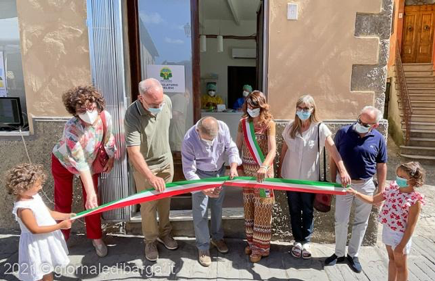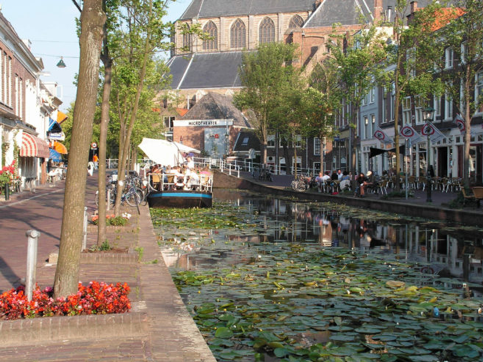Barcelona pilot project
The CitieS-Health pilot in Barcelona is in the final stretch. After a participatory process involving more than 1.000 people, Barcelona residents decided the research question according to their interests, in this case, how pollution can affect mental health. The data collection took place from September 2019 to January 2021 where 300 neighbours received a measuring kit in their homes. Depending on the level of participation, this process consisted of performing daily cognitive tests and questionnaires via an app during two weeks and carrying a NO₂ collection tube to measure the accumulated concentration of this pollutant for each participant over the course of a week. After this phase, it was time to analyse the data to establish possible correlations. At the beginning of June, the final results were presented at an online meeting during the European Green Week.


The results concluded that cognitive performance, stress and sleep quality worsen on the most polluted days in Barcelona. The findings also showed that people who live close to green spaces have their cognitive health less affected. In the workshop, we explored together with the attendees solutions and ideas to tackle a healthy life in 4 co-creation and hands-on dynamics on: the need for green spaces to fight pollution, sustainable mobility, citizens data as a source of scientific research and healthy habits for emotional wellbeing.
In September, the final results and co-created recommendations were published and presented to the community and the media during the Park(ing) Day 2021 event, held in Barcelona on 17th September to raise awareness of the issue and rethink how to reverse the situation together with citizens.
Ljubljana pilot project
In the Ljubljana CitieS-Health pilot, data collection that lasted for about 6 month, ended in April 2021. Overall, 65 volunteers (ages 9-67) signed-up and registered for the main study administered using the Ethicadata platform. Of these, 50 actively participated throughout the scheduled time. In collaboration with one of the elementary schools in Ljubljana, a specific tailored study was designed with 25 participating students. In addition, numerous other related activities involving pupils and students from three primary and secondary schools, took place. To this end, in the course of the project lifetime, over 350 children participated in tailored group events organized (e.g. school nature and technical days), and four school research assignments were made in which 10 students participated.

For the participants of the main study, an online data gathering and visualisation platform was created that enables independent data processing by volunteers. The platform was demonstrated and its feasibility tested with a first group of volunteers during a dedicated workshop organised. By mid-July 2021, all participants will be granted access to the data portal. In the coming months, tailored events will be organised. A number of workshops are foreseen for the fall, including a data-treatment workshop with the participants as well as meeting with policy makers where the outcome of the pilot will be presented and discussed. Throughout the process, feedback and process evaluation is done, e.g. using questionnaires and other tools, and that will enable conduction of the evaluation in the last phase of the project.
Lucca pilot project
The Lucca pilot study is currently in the blood sampling recruitment phase, which is crucial for the success of the project. Team members from outside the local community are providing potential participants with information regarding the project during the informed consent procedure. It was decided that these outside community members would provide information to guarantee that local citizens had full freedom in giving or refusing their informed consent and thus avoiding possible stigmatization.


According to the Citizen Science characteristic of the study, interviewers that are currently administering the questionnaire were recruited also locally and appropriately trained, with special attention being paid to avoid information biases. The questionnaire is being submitted to the selected sample of residents with questions concerning occupation, diet and lifestyle. Due to the Covid-19 pandemic and the related restriction measures, and following the guidelines of the Italian National Ethical Committee for Covid-19 research, we have been carrying out these tasks remotely. In particular, we collected consent by means of recorded telephone interviews instead of traditional face-to-face meetings. We have set up a dedicated outpatient clinic in the town of Barga for the collection of blood and urine sampling. We are also organizing weekly open meetings remotely to manage and monitor the progress of the study. All emerging problems and possible solutions are discussed with the citizens and implemented in agreement with them. Critical issues concern the monitoring of subject recruitment, the collection of consensuses, the recording of interviews, and the scheduling of blood and urine sampling. These activities require the design of appropriate communication strategies in order to promote people’s participation in the study. The collaboration with the local Mayors is of utmost importance and the recruitment phase is well advertised by the Municipalities through various kinds of media (websites, Facebook pages, etc). In August we launched the blood and urine sampling campaign with the Mayor of Barga as a first participant, a choice which we expect to carry high symbolic significance and have a strong promotional effect. After this event, we started collecting blood and urine samples from participants. To date, we have collected biospecimens from 65 participants. Concerning the public endorsement of the study protocol –approved by the medical ethical committee – we are planning a public event in which three independent reviewers – respectively chosen by citizens, researchers, and local administrators – will critically appraise the study protocol and take part in a public discussion. Finally, the book (entitled “Rame quotidiano”, to be published) on the history of the potentially polluting plant and its relationship with the community has been completed and a public event has been planned.
Amsterdam pilot project
The Dutch CitieS-Health pilot projects have all finished the data collection phase. Various different groups of citizens were involved throughout the different project stages. Roughly 100 citizens were involved in the development of the research questions, of which 30 citizens were heavily involved in the realization of the project design. This was done through an online call for research questions, and various face to face and online meetings. The research questions addressed in this pilot are as follows:
- What are the short term health effects of wood smoke on the respiratory health of adults with and without COPD/asthma? (panel study)
- What is the concentration of woodsmoke present during a walk in IJburg, Amsterdam? (mobile measurements)
- What is the concentration of woodsmoke present in a home with a fireplace vs a home that experiences hindrance from surrounding fireplaces? (stationary measurements).
The data collection phase for all of these projects took place from January 2020 – May 2021. A total of 50 citizens took part in the panel study. Participation involved keeping a daily symptom diary, spirometry measurements twice daily and 3 weekly saliva samples. Six people participated in the mobile measurements; however, due to COVID-19 restrictions the final data had to be collected solely by the researchers. Finally 12 people participated in the stationary measurements which involved placing equipment in either the room with the fireplace/ the room where citizens experienced the most nuisance.

We are currently busy with preparing additional meetings with citizens to discuss possible outcomes and discuss data analysis strategies for all of the projects. The Dutch research team hopes to be able to present all of the concept results to and with the citizens in November 2021.
Kaunas pilot project
The perception of urban environmental quality is an important contributor when identifying local problems in sustainable development and environmental planning policy. We conducted a survey of 1,062 18–75-year-old participants residing in 11 districts of Kaunas city, 2019-2021 engaged in the study, to determine their perceptions of environmental quality, health behavior, and health indices. This citizen science research created an opportunity for the participants to familiarize themselves with the local environmental problems, to engage in research planning, data collection, and to raise awareness about the links between environmental issues and health.

Information collected covered socio-demographic and health-related data, residence history, as well as neighborhood environmental quality ratings and the self-reported ratings on the acquired knowledge measured using a Likert rating scale. Using an environmental epidemiological approach, we conducted a cross-sectional study seeking to assess the relationship between the environmental quality perception of the residential area, physical activity, stress level, and the prevalence of hypertension. The findings suggest that the quality of the built environment and the recommended level of physical activity had a complex effect on the stress level and hypertension and that the recommended physical activity level can modify the effects of noise on hypertension in 45–64-year-old participants. (More see https://doi.org/10.3390/ijerph18116126).
